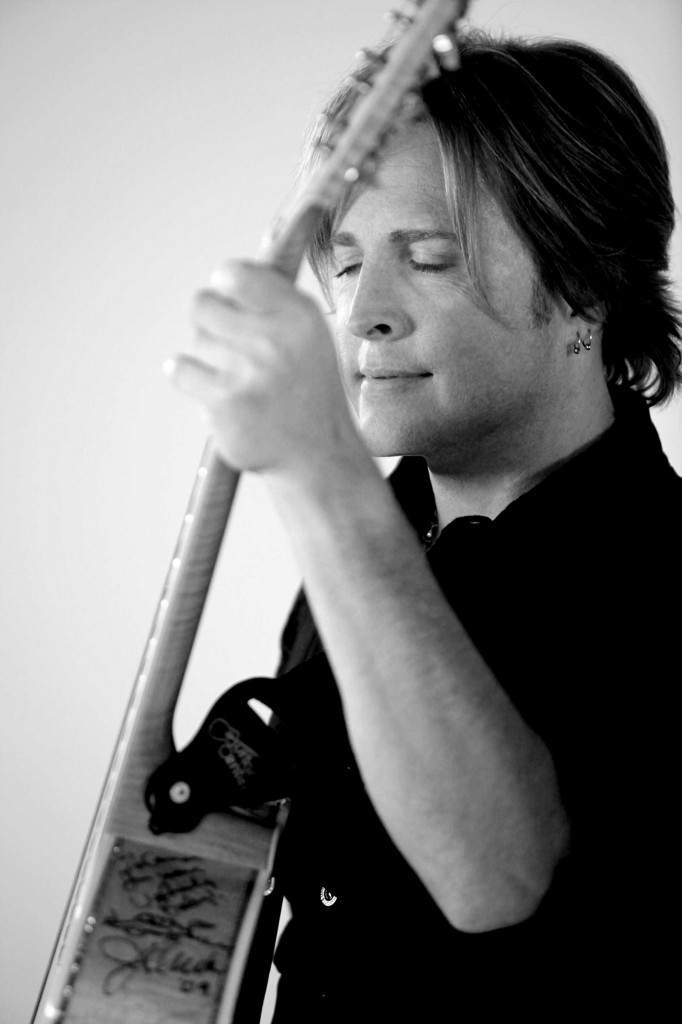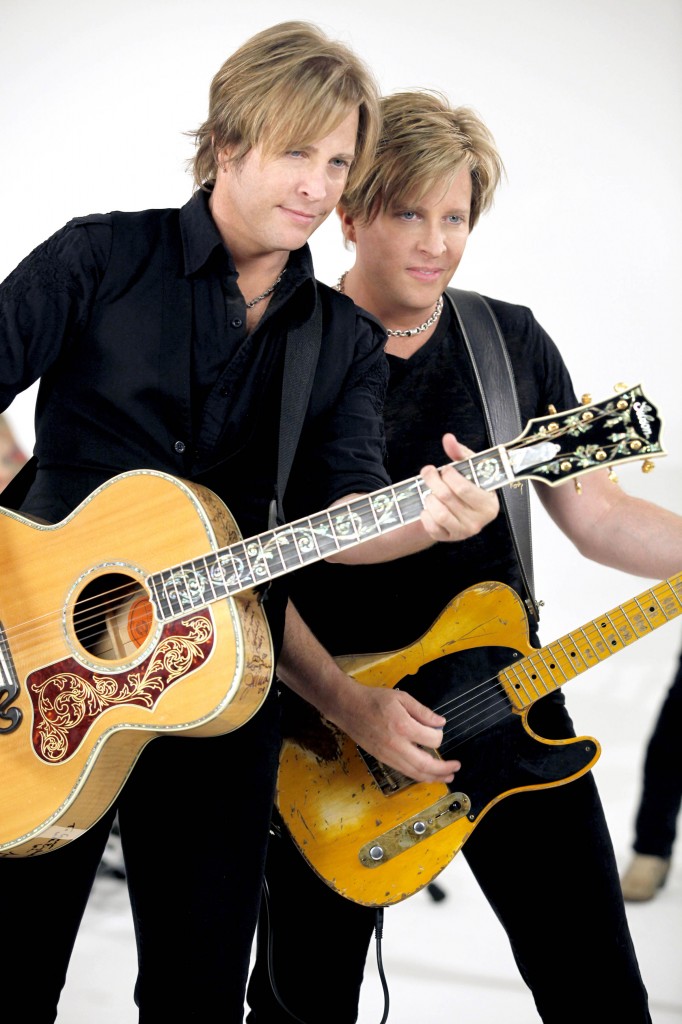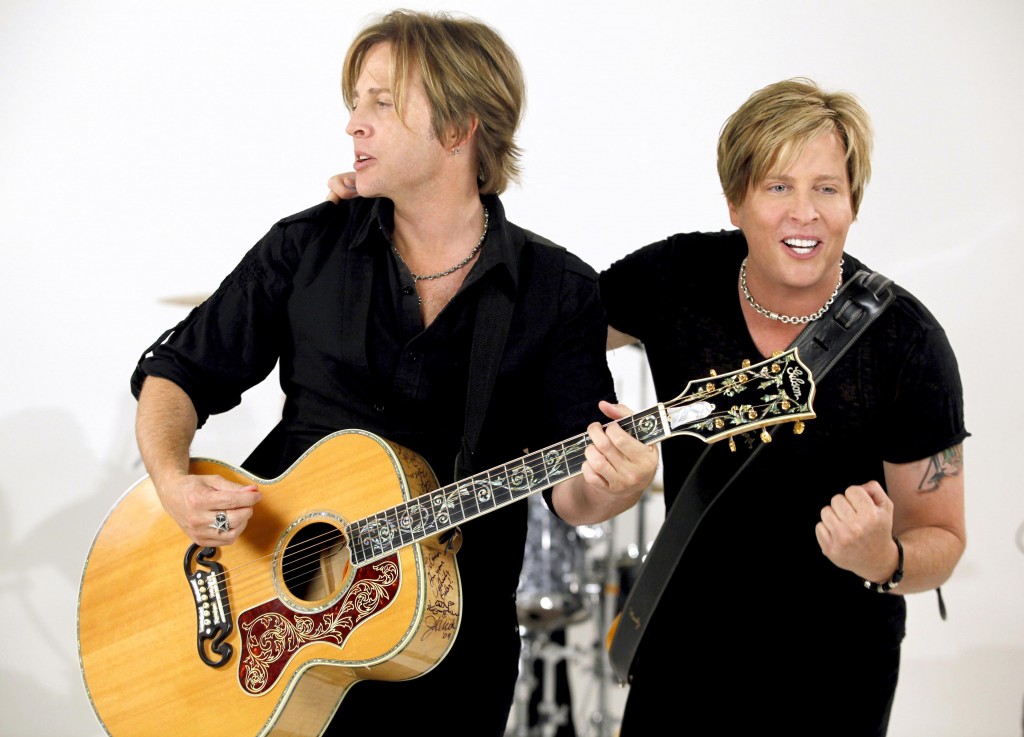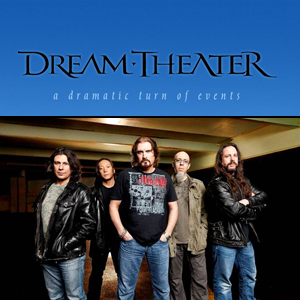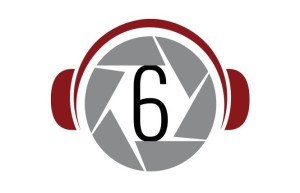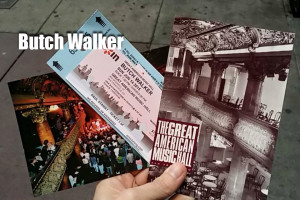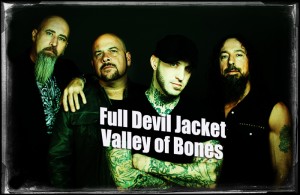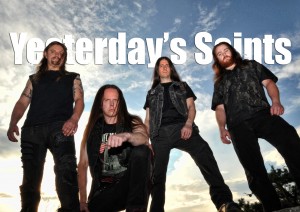Lightning Strikes Twice: A Conversation with Nelson
28 min read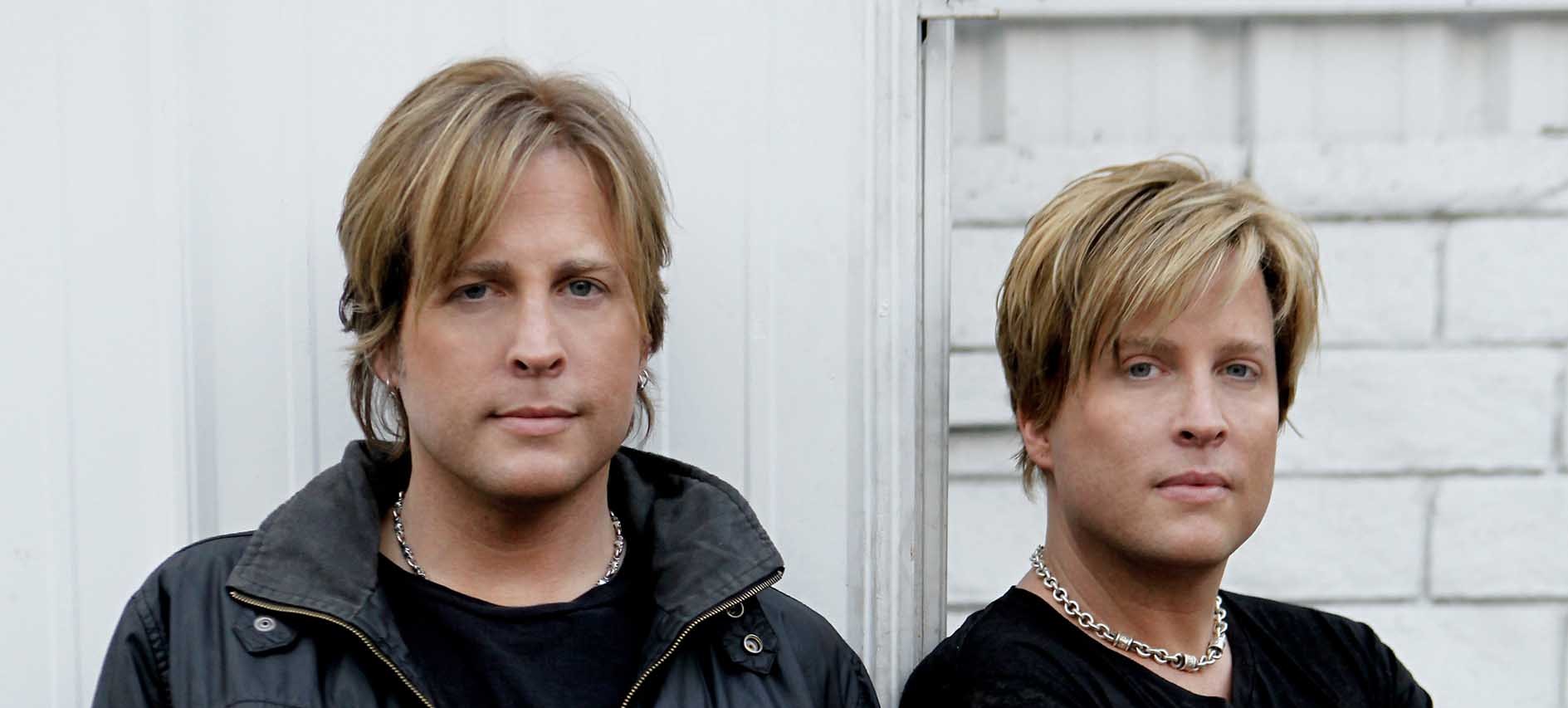
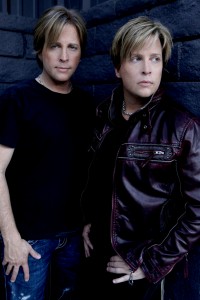 I know that I’m giving something away when tell you that when I first heard Nelson’s hit single “Love and Affection” on MTV during the summer of 1990 that I literally jumped in my car and raced to the record store to buy the album. Sometimes I would just have an instinct when it came to music – like in the case of Nelson one song was all I needed to hear to know that the rest of the album was going to be good. And I was right. There wasn’t a bad song on it. Looking back on that summer. It was my last summer of innocence. I didn’t realize it at the time, but the world was about to change. For me it was almost as if the world went from smiles to frowns in less than a year. This was only slightly before the admission that if you liked any music by any band that was unlucky enough to hit the scene on the outer bubble of the 80’s as being synonymous with admitting that you once liked smiling. Then came Kurt Cobain and the invading storm of other bands from Seattle and thus ended the era of smiles. Thankfully it also ended the era of teased hair, spandex and men sporting more make up than their girlfriends, but that’s another story. In any case it was the intro to “Love and Affection” that was purely and simply one of the most recognizable and maybe the happiest of the era. For better or for worse, and for the next twenty years, Nelson would be judged mostly on the merits of when they hit the scene and not what they hit the music scene with. Nelson made good music. But when you listen to some people talk about the post 80’s era, you would never know it. The critics would have you think that their hair was too perfect, their smiles too bright and their voices were too good to be taken seriously. I recently got to talk to Gunnar Nelson and talk about his feelings regarding their meteoric rise to stardom, how grunge changed the game as well as how Nelson persevered through it all. If you’ve never had a chance to get Nelson’s take on what it was like to go through all of life’s peaks and valleys in the music scene, you should really check out our conversation as it really does have something for everyone.
I know that I’m giving something away when tell you that when I first heard Nelson’s hit single “Love and Affection” on MTV during the summer of 1990 that I literally jumped in my car and raced to the record store to buy the album. Sometimes I would just have an instinct when it came to music – like in the case of Nelson one song was all I needed to hear to know that the rest of the album was going to be good. And I was right. There wasn’t a bad song on it. Looking back on that summer. It was my last summer of innocence. I didn’t realize it at the time, but the world was about to change. For me it was almost as if the world went from smiles to frowns in less than a year. This was only slightly before the admission that if you liked any music by any band that was unlucky enough to hit the scene on the outer bubble of the 80’s as being synonymous with admitting that you once liked smiling. Then came Kurt Cobain and the invading storm of other bands from Seattle and thus ended the era of smiles. Thankfully it also ended the era of teased hair, spandex and men sporting more make up than their girlfriends, but that’s another story. In any case it was the intro to “Love and Affection” that was purely and simply one of the most recognizable and maybe the happiest of the era. For better or for worse, and for the next twenty years, Nelson would be judged mostly on the merits of when they hit the scene and not what they hit the music scene with. Nelson made good music. But when you listen to some people talk about the post 80’s era, you would never know it. The critics would have you think that their hair was too perfect, their smiles too bright and their voices were too good to be taken seriously. I recently got to talk to Gunnar Nelson and talk about his feelings regarding their meteoric rise to stardom, how grunge changed the game as well as how Nelson persevered through it all. If you’ve never had a chance to get Nelson’s take on what it was like to go through all of life’s peaks and valleys in the music scene, you should really check out our conversation as it really does have something for everyone.
C6M: I actually want to — I want to talk about everything. I kind of want to go through the history of the band and go all the way through — I mean probably everything that you’ve talked about, but hopefully I do it a little differently.
Gunnar Nelson: Sounds great, let’s go.
C6M: Okay. So, yeah, you guys made ‘After the Rain’ about 20 years ago, and I just wanted you to paint a picture of what that was like, that whirlwind of kind of getting that success very early. Were you guys ready for that attention and stardom, even considering that you came from a family of entertainers?
Gunnar Nelson: Wow, good question. I don’t think anything can prepare anybody for that kind of success. I mean really honestly it was a — it’s hard to describe. I mean thinking back on it, it was kind of like New Kids on the Block level of success without the aid of Disney. So, that was really impressive. I don’t know, we’ve been playing music since we were six years old, literally, and playing the LA clubs professionally from the time we were 12. We got a record deal when we were 19, and released at 21, and had our first number one at 22. But really honestly, there’s nothing that can prepare you from doing three or four nights a week, playing the LA club scene to playing at the Universal amphitheater size places overnight, and that’s basically what happened. I mean what really worked for us, to be honest, was going out and doing some MTV vee-jaying. I mean people got to see me and Matthew before the record was even released, and then we released the album and stuff, and at the same place, at the same shopping malls that we would shop at when we were teenagers in LA. The next thing you know, we’re closing them down, because there are mall riots, and the only thing that it changed was being seen on TV and video, that’s it.
C6M: Right, right. So, one of the things I always remember about this band in particular is that you guys did definitely — especially with that first album, that was like a signature sound when “Love and Affection” started, that was an intro that you were like — Nelson. And it was very, very much — you could say this — in a way it was a compliment to you guys, because you could hear that and go, “That’s Nelson,” as much as you could hear the beginning of some other song and go, “That’s Van Halen,” or that’s whatever…
Gunnar Nelson: Yeah. Basically that’s what we wanted to do. I mean our motto, when we first came out was, ‘Love us or hate us, you’re going to know who we are.’ We were making our debut and of course we were doing things contrary to the way most of our contemporaries were. I mean Nelson was never really intended to be a heavy metal band at all. We were a hard pop band. I mean we grew up, like I said, playing all those LA clubs on the same stages, even though we were a lot younger with the Romantics and The Go-Gos and The Bangles, and The Knack, and all those skinny tie bands and stuff. That’s what we kind of grew up emulating and trying to compete with, songwriting wise. And I do think that it was super easy for Geffen, our label when we first came out, to market us to two very specific markets. We never actually did a single interview for one teen magazine, but that didn’t stop Geffen from going, “Oh yeah, you teen girls, rock on, we’re going to do all the Tiger Beats and Teen Beats and all that stuff, and they sold all our pictures to all those magazines. I mean that was cool and all, but — and then the other thing, the big magazine of the day was Metal Edge magazine. And so, they put us by default next to Warrant and Winger and Poison and Slaughter and all these other bands, who really honestly wouldn’t tour with us back in the day, because they didn’t think that we were real. They didn’t think we were tough enough or rock enough or whatever they thought. And we wanted to go on a big tour opening up for one of those bands that was more established. But since no one would take us out, the only thing we could do, because we didn’t have a choice, was actually headline. And so, we went out and did our own headlining tour of theaters, and sold all those out, did about 80 theaters coast to coast, which was great. And shoot, really honestly it was kind of a struggle from jump, because we were — because we come from the family that we come from, and we had the image that we had and all that stuff. It was kind of like we’ve always been made to feel guilty until proven innocent for some weird reason, where — I mean being a son of — I think my dad had the same kind of onus on him, but the one equalizer that we always had is that we started out writing songs from the time we were really young. And a lot of those other bands on the sunset strip back in the day, they had everything going for them. They had strong image, they had a strong following. They had all of the cool gear, and they had no songs. And it was weird. You go out, you see a show, and maybe one song was kind of catchy, and that was it, but we were raised to be songwriters first and foremost. So, when you were to listen to one of our songs, again back to that philosophy, love us or hate us, you’re going to know who we are. We wanted it to be recognizable from the first 12 string guitar like in “Love and Affection,” we wanted you to know that it was us, and have its own very unique signature sound. I mean I owe a lot of that to Mark Tanner, who co-produced the first record with us. He came from more of an artist background, and he sat us down and had a talk with us before we first started going in and making demos for Geffen. He said, “You got to think, your competition is no longer what’s hot on the sunset strip or what’s playing in the clubs. Your competition is what’s going on, on the Billboard Hot 100 charts, what’s going on in the top 10, and why should a listener, why should a fan, so to speak, spend their hard earned dollars to buy your record when they could buy anyone else’s record? Why would they pay good, hard earned money to see your show, when they can see any other show out there? What’s going to make you unique and special and different?” So, that’s the way we approached the sound, and most people coming from more of like that metal sort of blues background, we came from a folk background, growing up with our dad’s Stone Canyon Band and Linda Ronstadt and Jackson Browne and The Eagles and the whole Southern California thing. That’s basically what the Nelson sound really was. It was a great amalgam of folk and arena rock, and that’s what we’ve always done.
C6M: Right. So, you definitely sort of subscribe a little bit at least to the idea that the lack of respect had more to do with lineage than sound, so to speak?
Gunnar Nelson: Well, you know, I think so. I mean it’s funny, it’s that any critical — any bad press that we have ever gotten in our career, they’ve all — like any bad reviews, they’ve all been personal attacks. No one has ever attacked the music. It’s always been some — kind of like some reviewer thinking they were being funny and saying something for the first time, and making some comment about the family or some comment about the hair or some comments about the image or something, but they’ve never been able to flag the music. So, to me that’s a tremendous compliment, and I feel a lot better about — I mean of course there’s going to be a backlash. We sold 5 million records to a bunch of teenage girls who had no idea who Rick Nelson or Ozzie and Harriett were. But there’s going to some sort of a backlash, but to me I felt better after I read an interview or an article that John Fogerty had written for my father. They were — I guess it was a — Billboard was doing — no, Rolling Stone was doing the 100 most influential people in rock history, and our dad came in at like 89 or something like that, which was really nice. But Fogerty was who wrote the article, and he summed up the article by saying, “For a lot of people to have to admit that Ricky Nelson had the talent he really had, would be like having to admit that the prom queen had a brain.” I guess my dad went through that quite a bit too, and he was never really concerned about the critical press or anything. He was raised as an entertainer, that’s his job. He comes from a family that’s been doing it for a 120 years. So, it depends on what kind of — what your motivation is. I mean for me it’s always been about entertaining folks, but I can’t lie to you, this new record that we just put out, is getting stellar reviews all over the world, and it’s really a first for me. And I mean it does feel pretty good to actually be able to kind of like cater to people on both the critical level and the fan level. It’s nice for me as somebody who worked really hard on it. I have to say that I actually kind of enjoy it for a change.
C6M: Well, do you feel like now that you’re far enough removed from it in a lot of ways, do you feel like it’s sort of like — I heard an interview with Duran Duran once, where they said that when they started out, it was sort of the same thing, that the teenage fans were screaming and yelling so loud that they could hear themselves play. And then when they sort of had their second comeback, they said that there was this really weird feeling of the audience actually listening to them. Do you feel like that’s what it is now, that they’re finally like — you’re like putting music out there, and they’re finally going, “Oh, this is pretty good,” because they’re actually listening versus like…
Gunnar Nelson: Well, I suppose so too. I mean look, we’ve got a new live record coming out here pretty soon, called The Perfect Storm, and man, you can barely hear the music. You can really hear what 20,000 chicks actually sound like at the top of their lungs. It’s pretty interesting.
C6M: But I just mean from a critical point of view, you know what I mean? Like you said, it’s very easy for people to attack music, like especially with you guys, because they could throw out a whole bunch of things like maybe you didn’t earn it, you come from — obviously your father is this person and your grandfather is that person, so of course you’re going to be a star, you know.
Gunnar Nelson: Well, I mean I suppose. I mean we got turned down by every label in Los Angeles and New York twice, before we actually got signed by John Coladner, but it really doesn’t matter to me, because it’s really not up to music fans to know how hard someone struggles to bring them the music that they actually made a part of their life and currently a part of their iPod. For me, I mean I really don’t care. I think the thing that people respect most, to be honest with you, is the same attitude that my dad actually kind of wrote a song about, which was “Garden Party,” ‘You can’t please everyone, so you got to please yourself.’ And I think nothing is more worthy of respect than people who won’t quit. And honestly, I mean Matthew and I have really dealt with the toughest shots that the harshest critics in the world have been able to throw, and managed 20 years later, and we’re still making the music that we love to make, and we do it better than anyone else in the world. So, it’s totally fine with me. I mean to me, I didn’t really — I mean honestly let me — I’m going to change what I was about to say, because the one thing that’s really changed between now and then for me. I mean you mentioned the Duran Duran thing, was perhaps not the way people were listening to the music, but for me the motivation of the music was made from. I think when I made my first record, and I was young and dumb and insecure, I was making that record and going for that success from my ego. I mean it was really ego driven. It was like, “I’m going to show all those fuckers from back in high school who told me I couldn’t do it, that I can. I’m going to tell all those teachers who told me I wasn’t going to amount to anything, and that I can.” My mom who said, “Do anything other than music, please God,” but she was wrong. And I remember actually being so focused on the outcome being number one and selling millions of records and doing all that stuff, that I mean a terrifying moment for me, believe it or not, was on my 22nd birthday, I got a phone call from the manager who said, “As of this morning, you have the number one song on the planet. You have the number one song on the Billboard Hot 100, the holy grail of all charts. You’ve done it.” And it’s funny, because if you’re coming from ego and stuff, you think that’s going to be the end all, be all. But I remember this terrifying feeling of, “Oh shit, now what?” And I’m only 22, so it’s like — and I didn’t remember the ride. I didn’t remember all these like incredible adventures I had going from small town to small town with an acoustic guitar with my brother in the year that Milli Vanilli scandal happened, proving to all these radio people that we actually really did write and sing and play. And all those critics, I don’t remember any of that stuff. And so, I vowed to myself, if I were to get — to be able to get another crack at it, that it wasn’t going to be coming from my ego, it was going to be coming from my heart. Honestly, that’s what this newest record was really made from, with a completely different motivation. It was — I’m not trying to prove it to anybody other than myself, making music that I make, because I want to, not because I have to. This is definitely not a record I had to make, but it’s something that I always felt I was destined to make in 1992 or 93, had grunge not happened.
C6M: Right. So, do you think that’s why primarily that — we’ll get back to the album, but that there was such a long gap between 1995, Geffen didn’t put anything out by you guys.
Gunnar Nelson: Yeah, I know it for a fact. Here is what happened. We went out and we did a whole tour to support the After the Rain record. We went out, we did I think 225 dates, we were gone for 14 months straight. And because when you’re out there on a tour, I mean inside of every concrete bunker looks the same. When you’re touring, you’re going from arena to arena, and it’s groundhog day and you’ve got a job to do. So, my focus for 14 months was keeping my voice and bringing a great show every night, no matter how up or down I was feeling. So, that was my job, paying no attention to what was actually going on back home and in the world in general. We were experiencing the single largest paradigm shift in music industry history.
C6M: Yeah, absolutely.
Gunnar Nelson: Absolutely unprecedented. Never happened before that, that way, and it probably will never happen since. And the double whammy is that Geffen Records, my own label, is who signed Nirvana. Okay, so I come back home from playing for 14 months straight, made the record company $25 million. I think I’m going to come home the conquering hero, get right back in the studio, make another record, and I come back to find, with just a couple of notable exceptions, everybody that I knew at the label, everyone I’ve been working with for years, who had signed me, they were all fired and gone, and Geffen had hired college kids. I mean fresh, like fucking out of school, everyone is wearing flannel. If you weren’t from Seattle, you were just persona non grata, radio wasn’t playing you, video — I mean MTV was not playing you, you were over. Geffen found themselves in a really interesting position. They couldn’t let us go and go record for somebody else, because it would be embarrassing if we came off of that, and went to like Warner Brothers, who were still supporting melodic hard rock and made a record that hit with people, it would have been embarrassing to them. So, all they did, their answer to it, was to keep us in the studio forever. And a lot of people don’t understand that when you’re signed to a record deal, you got to do what the record company says. You can’t record for anybody else. You literally are their property for as long as you’re signed, and we were signed with a three album deal. So, we were kept in the studio for four and a half, five years, watching our whole following go away, and there was nothing we could do about it, and it was that long to actually get out of the record deal.
C6M: Right. So, is that why you guys basically went and started your own label then?
Gunnar Nelson: That’s exactly why. We actually saw the writing on the wall. And I mean did we make that decision from inspiration or desperation, I don’t know. But I do know that we realized that the only carrot that a major label can dangle in front of any starting artist is, “Hey kid, we’re going to make you famous.” Now, if you look at the business side of major labels, none of it makes any sense. And I have this talk with kids who are starting up all the time, and the best way for me to describe the typical paradigm of the music industry is okay, the music industry is like buying a house. I go to the bank and I get a loan from the bank to buy my house, okay. It’s a lot more than I can normally afford, but the bank loans me the money, I buy the house and then I work really hard to pay the bank back. I work for 10 years to pay back the bank all their money and I finally pay the bank back, and the bank still owns my house. I’ve just described the record industry. That’s what it is. You get an advance, you hopefully pay back the advance, which most bands don’t, we did, and then the label still owns your masters, they still own your real estate. And we thought, “You know what, that’s kind of screwed” but if the only leverage that a major label has is “We’re going to make you famous,” what happens if you are famous? What happens if you worked hard, and what you actually really got out of it might not be the financial reward, but what you got was you got notoriety. How can you turn that into something where you have the power and you can actually sell your records? And that’s what we did. We started Stone Canyon Records, and we went to all of these different labels all over the world that Geffen had been working with in different territories. Like it’s not Geffen Records selling our records in Japan. Back then it was MCA, so we went to MCA in Japan, who’d had great success with us in their territory and said, “Hey, we’re no longer with Geffen, but would you like to work directly with us and still release Nelson records?” And they’re like, “Absolutely.” So, we would do our individual deals as a label with all these different territories and countries all over the place, and that’s what sustained us for the entire grunge movement, 10 years, of people not playing guitar solos and staring at their shoes, we were out there internationally keeping our — keeping the light bills paid. When a lot of our contemporaries went from heroes to zeroes overnight, we were still working, but we were doing it on our own terms, and I don’t regret that decision at all.
C6M: Well, I think in a lot of ways though it ended in — and I don’t know if you realize it, at the time, like you said, did you do it out of desperation or whatever, inspiration, but it became the model. Years later — I talked to tons of people in different bands, and they’re like, “Yeah, we’re starting (our own label)– we’re going to do it this way, we’re going to do it our way. We have our equipment…”
Gunnar Nelson: Yeah. You know what’s really helped though man, what’s really helped, obviously the internet has been a great equalizer. That’s what’s really, really helped, because beforehand — okay, a couple of things, and this is how technology can benefit people in the music industry. You once, once upon a time had to spend $250,000, $300,000, $500,000 making a rock record, because that’s what the technology — that’s what the technology was at. In order to record, you had to go into the big studio, you had to record on giant reel-to-reel tape. You I mean had to spend a $1000 a day doing it, that’s just what it was, it was the only game in town. Your only other alternative was making demos on a little four track cassette recorder, which sounded like ass. What’s changed now is, I mean you’ve got full blown professional unlimited track digital recording given to you for free in Garage Band on your Apple laptop.
C6M: Yeah, exactly.
Gunnar Nelson: Okay, 20 years go if you would have told me that, I would have laughed you out of the room, because your competition for that would have been, let’s say, just a recorder, a Mitsubishi 32 track digital machine, $500,000 it would have cost. Now, they’re giving it away with plugins and all that stuff, so I mean that’s really helped as far as recording budgets are concerned, okay. So, that was one of the reasons why you had to get a major label deal who had to fund the actual recording. You don’t have to do that now. I’ve got great vintage gear, I’ve got a home recording studio that’s absolutely pro quality, but I own it all know, which is great, okay. The second thing is distribution. Back in the day, the major labels, they owned the pressing plants for the CDs, they owned — they had exclusive contracts with the rack jobbers who actually supplied all of the local music stores. We were forbidden by contract to sell any of our records at our show, think how stupid that is. Okay, but now it’s like again, and you sell — of course you sell CDs at shows. You get people in a peak state, you sell CDs to your fans. Back then, you couldn’t because you’d piss off all the record stores. There are no record stores anymore, okay, so that’s done. Then the label is not only on the pressing plants, they also owned the distribution and the trucks. Okay, with the internet, you’ve got direct distribution, you cut out the middleman. The biggest middleman you got is maybe iTunes or Rhapsody or something like that, but you’re getting your end user without having to go through the major label {trucks}. This is great. So, I mean granted the downside is you’ve got a lot of crap out there, and it’s just like you know, again having a million channels and fuck-all to watch, but every now and again you’ve got bands that are able to be independent, and are able to build a following. And when you get past all the hype and all that stuff, getting people aware, there’s some really good music out there, and that’s really cool, and you couldn’t do that before. And so, here we are 20 years later, I’m able to make a record in my home recording studio and make it sound better than the record I first made 20 years ago that sold 5 million copies worldwide, and do a licensing deal that is with Frontiers in Europe, who actually has distribution deals all over the place. And I didn’t sell them my real estate, I merely rented them my real estate. I get that back in a couple of years, to go and make another deal some other place or go direct if I want to. So, I mean it’s great. It’s a great time to be a musician as long as you’re a musician who is already established. I got to be honest, I don’t know what to tell anybody who is coming up brand new, going, “How do I get a record?” or “How do I break into this business?” Dude, I mean I really don’t know. If the paradigm now is American Idol, which we should call Karaoke Idol, I really don’t know. I don’t know what to tell anybody. I mean my joy comes from writings songs, but I think that for the last five, six, seven years, the emphasis has really not been on songwriting at all. It’s really been on packaging. You’re either selling art or you’re selling product. I think Nelson was really well done, because we did both. We sold product and we — I feel personally even though I’m biased, I’m selling art as well. So…
C6M: Right. Well, let’s kind of close with two questions then. So, you…
Gunnar Nelson: I’m sorry I’m talking — I’m passionate about this, I’m sorry I’m talking so much, and I had nine cups of coffee.
C6M: It’s totally awesome. Actually, I’m enjoying the talk. So, what ultimately made you want to revisit the idea of sort of doing a follow up 20 years after the fact? And was it more like you had material and you wanted to revisit the idea, or did you have the idea and then started writing material sort of as a bookend to After the Rain?
Gunnar Nelson: Okay. Two really good questions, let’s start with the first one. Okay, I always felt that our career was unfairly truncated, and I mentioned that before, through no fault of our own. The agenda of the entire music industry as well — I mean specifically our label, it’s completely changed our destinies. We always thought we were going to get two, three, four records to grow and develop, and that really actually did not happen, and that was unfair. I mean I always felt like I had unfinished business that I wanted to attend to, all these years, for 20 years, that’s what I felt. And it wasn’t until two things happened. Starting about five years ago, I put together a band called Scrap Metal, and it’s a lot of the lead singers from the biggest 80s hair bands in one band. So, I’ve got Mark Slaughter from Slaughter, and me and Matthew and Kip Winger and Eric Martin from Mr. Big and Jimi Jamison from Survivor, and Jani Lane from Warrant and CJ from Firehouse, all these different guys that are cast members in Scrap Metal, and we do two or three shows a year, just for fun, just as a goof, and started doing them like five years ago. And I started to see that the audiences started getting bigger and bigger and more appreciative, and all of a sudden we’re packing out these halls, and people are like, “Man, you got to do this. I mean we love this stuff. This is great.” Now, granted on that, it was kind of a guilty pleasure wedding band, and it always has been, because we’re playing our hits from back in the day. The second thing that wound up happening, once I started getting a little more confidence that all of a sudden it’s not quite as uncool to be a creature from the 80s, for some weird reason, I get contacted by Serafino who is the owner of Frontiers in Italy. They’ve done some really great work recently. I mean they did the most recent Journey record. They’re doing the new Whitesnake record.
C6M: Yeah, they’ve got Extreme as well. So, yeah, yeah…
Gunnar Nelson: Extreme, yeah. They’re grooming or they’re — they’re poised now to actually be a really legitimate major independent label that specializes in our kind of music here in the States. And they’re getting very well received, which is cool. And I got approached right around this time, starting three, four years ago from Serafino. And he said, “Listen, big fan of the band. I really want to make the follow up I felt you guys were always destined to make,” on the tails of the After the Rain record. And I said no at first, because I think he would have been happy with anything, and back then in the day he would have been happy had I sent him my demos and put it in a nice pretty package and called it a Nelson record, and that’s not what I’m about. I said, “Listen, with all due respect, if I’m going to do this record, the only way I’ll do it is if I really freaking do it. I’m not going to kind of do it, it’s got to be every bit as good, if not better, preferably 20 years down the road, than that first record that you say you love so much. So, we’re either going to approach it like a major label record or we’re not going to do it at all.” He kept on coming back to me for a couple of years. Finally, three years into it, he says, “Okay, uncle, I give. What do you need? I’ll give you all the support you need to do this,” and I said, “Well, clearly I need the budget that I need to make a real record, like if I want to use real strings on this thing, I’m going to use real strings. I’m not going to use a synthesizer, I’m going to do it for real, and I’m going to use a great mixer, I’m going to use a great mastering engineer, and we’re going to do it first class.” He agreed, I got the work, it took 13 months to actually record the album, because I had to record all the instruments myself. And I took my time actually making sure that the song selection was up to par, and wrote the record specifically for this event. There’s only one song that shares the lineage with our past, and that’s the single that Serafino chose to release over in Europe first, which is called, “You’re all I need tonight.” It was co-written by Mark Tanner and me and Matthew, and it was supposed to be for our very first record. It didn’t fit on that record, just as far as space is concerned, we had too many songs. So, we had always saved that song, it was going to be the single for the second record that we thought we were going to be able to make, that we never did. So, Serafino had heard the demo of that, and that’s the only thing he insisted on. Everything else was written specifically for this record. And I’m really proud of it. This is the first time I’ve ever been a part of a record, any record, where I can honestly say I wouldn’t change anything. I wouldn’t change any of the instrumentation. I wouldn’t change any of the song selection. I wouldn’t change the order, I wouldn’t change anything. It feels pretty good man. I hope I’m not coming across as cocky, but it’s really nice when you do something for personal vindication, not fan vindication or critical vindication at all. Just I wanted to prove to myself that yes, I always felt I had an idea, that I had this record in me from way back in the day, but I wanted to prove to myself that I actually could get it done and get it done as well as we did, and I’m pretty proud of it.
C6M: Yeah. Well, and from what I’ve heard, and I’ve only heard a couple of songs on the site, but it does definitely have that signature sound that I was talking about. So, definitely I hope that it does have a lot of both critical success and commercial success, because I think it deserves it.
Gunnar Nelson: Thanks.
C6M: I do want to close real quick with one real quick question, if we can just be brief about it, but I really — I just found out that you guys had been paying homage to your father, and you released an album of cover tunes — or covering his tunes, and then you guys had actually done a sort of an interactive multimedia Ricky Nelson remembered show. Basically, could you in like maybe two minutes just tell me what that covers, and is it like a — is it a full blown show or is it more of a like a retrospective, you guys share stories or is it everything?
Gunnar Nelson: It’s all of the above. It’s much more than a mere tribute show. It’s a multimedia experience. Rick Nelson was the most televised rock star in history, and he performed on the end of our family show, the Ozzie and Harriett show. It was 14.5 years, 435 episodes, and he really grew up in front of American eyeballs at a time when there were only three channels on TV to watch. It was a real family playing a real family, and his musical career really blossomed in front of American eyeballs, and it was the first use of television, the power of television to market music. So, we actually have incorporated a lot of those great clips and cuts from the show and his performances, interviews with his friends like Kris Kristofferson and Paul McCartney and John Fogerty, as well as getting to tell as his sons, the stories behind the songs. So, it’s a real focused show of — it’s two hours of great pioneering rock and roll, the stories behind them, what was going on in the world at the time, brought with love and humor and sincerity. It’s a really, really cool show, and a 180 degrees different from Nelson, the arena rock band. It’s something that we do to pay tribute to our dad, because he was our best friend.
C6M: Right, right. Well, like I said, it definitely sounded like a really great idea, and I mean that in every way. I was like, “Wow, what a way to pay tribute to — give people a show and sort of revisit some really good stuff.
Gunnar Nelson: Thanks. My guitar player best described it as a high integrity show. And it really is. It’s really cool man, it gives people a lot of warm feelings.
C6M: Sweet, sweet. Well, again, thanks so much for calling and talking, and again, I wish you luck on the album, and we’ll definitely try to put you out there and let everyone know that you’re back and making music again.
Gunnar Nelson: Oh, thanks a bunch. Thanks for the support man, and I hope to meet you one day soon. Take care of SoCal for me, I appreciate that.
C6M: Absolutely.
As I was preparing for this interview, I was revisiting After the Rain (as well as all of Nelson’s other albums) in anticipation for Lightning Strikes Twice. For Nelson, Lightning Strikes Twice is both a declaration that they’re back and attempt to make a seamless follow up to After the Rain. But as I listened to After the Rain and got to the final track, “Will You Love Me?” I couldn’t help but ponder the unintended anthem directed back at Nelson. After all this time, will we love them like we loved them yesterday? I hope we do.
Don’t forget to visit their website http://nelsonkicksass.com and follow them on Twitter @NelsonRockBand. And don’t forget to let them know that Paul sent ya!
By Paul Stamat
